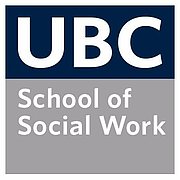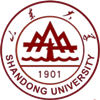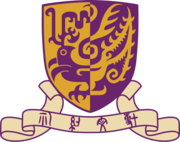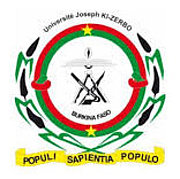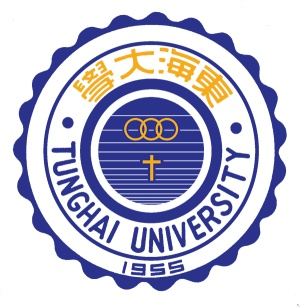-
The First Workshop of the ISUSW 2021
At 1pm GMT-8time on July 13th, Group A's first workshop started. A total of 24 students participated in this activity, including 4 CUHK students, 4 RCSS students, 4 WSU students, 4 THU students and 8 SDU students. The participants have some different research and cultural perspectives. They come together for a cross-cultural discussion based on knowledge of social work.
 The Team administrator send the newly created meeting link to the discussion group, and participants entered the workshop meeting by clicking “join”. This workshop was mainly divided into three sessions, namely, virtual ice-breaking, selection of group leader, and sharing of online or offline social workers’ practical experience. Under the coordination of Professor Sun Yanyan and Assistant Cui Zhijie, the workshop was carried out in an orderly manner.
The Team administrator send the newly created meeting link to the discussion group, and participants entered the workshop meeting by clicking “join”. This workshop was mainly divided into three sessions, namely, virtual ice-breaking, selection of group leader, and sharing of online or offline social workers’ practical experience. Under the coordination of Professor Sun Yanyan and Assistant Cui Zhijie, the workshop was carried out in an orderly manner.At the beginning of the ice-breaking period, we were a little nervous because of the total strangeness. However, after one member first broke the silence, the atmosphere became better. Workshop members took turns to introduce themselves, exchange basic information and share their own experiences, which gradually enhanced their understanding of each other. By the end of the period, the relationship was at ease.
After the large group briefing, the Team administrator used the “Creat Breakout Rooms Function” in the meeting to set up four subgroups and assigned members to different subgroups according to the subgroup list. There are six people in each subgroup for intra-group communication. The subgroup took gender, age, region, nationality and other factors into full consideration, hoping to facilitate the group members to explore the knowledge and practice of social work from multiple angles and levels, and get new inspiration. Each subgroup also needs a team leader for internal and external coordination and communication, who is voluntarily elected by members of the subgroup. After full communication among members and comprehensive evaluation of their own abilities, the four subgroups selected appropriate members to serve as leaders.
 During the experience sharing session, everyone spoke freely. Many of the members have extensive social work experience. Dr. Guo Haoyi from the Chinese University of Hong Kong shared her experience in helping ethnic minorities (Filipino workers) integrate into the society in Hong Kong and her unique experience in social work practice. Dr Kang Jin, from Tunghai University, who studies disaster social work, believes that how social work can intervene in natural or man-made disasters and how social work can use its professional knowledge to help people recover from disasters is already a valuable research topic. These members, who are proficient in professional theories and skilled in front-line service, help us to understand social work from a more accurate, practical and diversified perspective, which benefits us a lot. At the same time, there were also members who had first contact with social work practice and expressed their vision and outlook for the future of social work with their own understanding. It is the collision and exchange of different ideas, and the output and feedback of different values that give this workshop its unique significance.
During the experience sharing session, everyone spoke freely. Many of the members have extensive social work experience. Dr. Guo Haoyi from the Chinese University of Hong Kong shared her experience in helping ethnic minorities (Filipino workers) integrate into the society in Hong Kong and her unique experience in social work practice. Dr Kang Jin, from Tunghai University, who studies disaster social work, believes that how social work can intervene in natural or man-made disasters and how social work can use its professional knowledge to help people recover from disasters is already a valuable research topic. These members, who are proficient in professional theories and skilled in front-line service, help us to understand social work from a more accurate, practical and diversified perspective, which benefits us a lot. At the same time, there were also members who had first contact with social work practice and expressed their vision and outlook for the future of social work with their own understanding. It is the collision and exchange of different ideas, and the output and feedback of different values that give this workshop its unique significance.
 At the final session of the workshop, each Team member rejoined the group through the meeting link provided by the Team administrator. The 4 subgroups came together to report and discuss the communication results of eachsubgroup. For example, A1 Group focuses on the role of governments in social work in different countries and regions. They believe that in western countries, the government has a weak function and civil organizations have a strong voice in social work, while in China, social work is characterized by an obvious administrative system. The A4 group focuses on the differences in social work methods in different cultural contexts. This kind of cross-regional and cross-cultural sharing of social work experience broadens the students' thinking and helps them to carry out social work practice from a more international and diversified perspective.
At the final session of the workshop, each Team member rejoined the group through the meeting link provided by the Team administrator. The 4 subgroups came together to report and discuss the communication results of eachsubgroup. For example, A1 Group focuses on the role of governments in social work in different countries and regions. They believe that in western countries, the government has a weak function and civil organizations have a strong voice in social work, while in China, social work is characterized by an obvious administrative system. The A4 group focuses on the differences in social work methods in different cultural contexts. This kind of cross-regional and cross-cultural sharing of social work experience broadens the students' thinking and helps them to carry out social work practice from a more international and diversified perspective.Due to the epidemic, the international Summer University could not be held offline, but with the TEAMS online meeting software, teachers and students transcended the limitations of space. Their communication and collaboration became extremely convenient. What's more, TEAMS can record and save the lectures and workshops for after-class reviews.
The workshop had a clear process, a harmonious atmosphere, and achieved the expected goal perfectly, which laid a good foundation for the next workshop. At 4pm, the workshop ended successfully.
Written by Ma Meng (MSW student, SDU)
July 15, 2021




